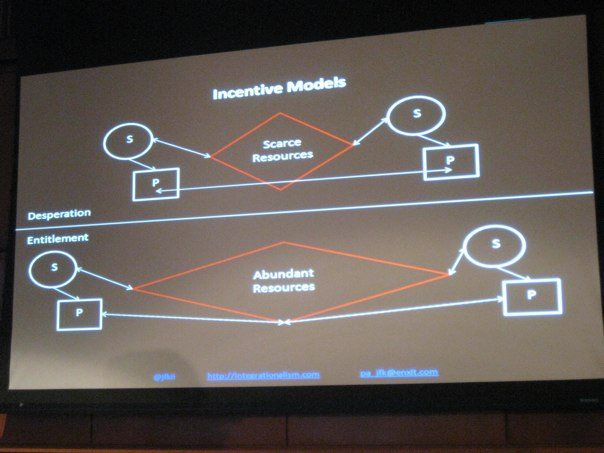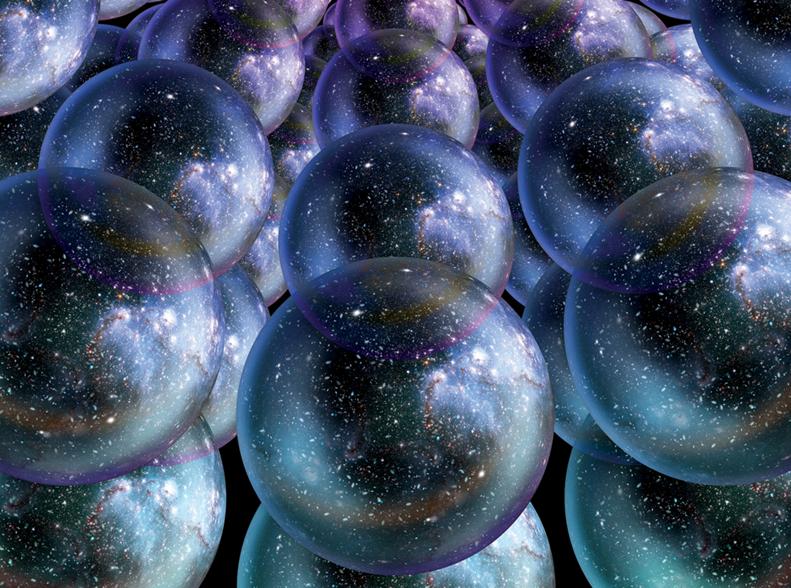After posting a few weeks back on a Richard Dawkins article specific to Jesus and Atheism, I was responded by Lincoln Cannon a post called the New God Argument. I first heard this argument at the University of Utah from Lincoln while visiting the area for a conference.
Its logically sound, when the faith position is adopted. The argument is a derivative or rather an advancement on Nick Bostrom’s Simulation Argument and and Robin Hanson’s Great Filter argument, as the links above will tell anyone is much more detail. I’ve even sited Bostom’s 2003 paper in my own defense after being wrongfully labeled as an atheist. Its one thing to state that there is no God (atheism) or that we cant know if there is a God (agnosticism), and quite another to state that we could create or evolve into one or a vast many.
I think that Lincoln’s argument progressive and may provide the next wave of theology arguments in their defense this century. It’s fascinating to see how far the modern human mind can go in its extrapolation of our exiting technological potential. As Lincoln puts it, the logical truth that post-humans have a probability of.….……
[from Lincoln’s — angel argument, benevolence argument, and creation argument]
posthumans probably already exist
AND posthumans probably are more benevolent than us
AND posthumans probably created our world
After reading the argument I’m compelled to revisit my previous writings on spirituality. When I wrote that I was NOT and atheist I was leaving open the possibility (because of the probability) that we, as the new God argument reads, wont become extinct before becoming post-human. I was also relying on the probability that we could potentially create civilizations, worlds, galaxies, universes, multiverses, with humanoid or homo sapien like individuals. Having stated that I think that Lincoln and my definition of the God figure are much different.
When I reference the term God I’m only meaning to represent a creator figure; I am however, excluding the potential for this figure to intervene in those created lives/world/simulation. I cant find rationale that suggests the creator figure would have any incentive to intervene to interact as benevolent or otherwise.
Physics dis-Incentives: I think that there would first exist some very rigid code (computer language) that manifests in what we understand as our physical laws. Plenty of traditional atheists have identified the inconsistencies in physics as a cornerstone in their rebuttal to the spiritual realm. Their point being, physics is the great divide between what we are/can-be and what we cannot.
Management dis-Incentives: I don’t think that the creator figure would have the incentive to modify imperfections that it sees in its creation, because of the potential to recreate duplicates to modify with a searchable history for analysis are so attractive. We see these types of practices happening currently in the Information Technology (IT) industry becoming more common as computing power/speed/space become greater/faster/more abundant respectively. While There is the potential for the multiple creators in different places and times during a continuous evolution of (what some would call) our current transhuman being, to create existences like our own, they would all be quite different depending on the technology available, and unlikely curated to take advantage of the latest technologies available because of the obsolescence that exponential technological growth provides.
Economics dis-Incentives: Similar to the argument that I made in 2010 at Transhumanism & Spirituality the context in which individuals identify with “their own” spirits and a “supreme” spirit are inconsistent with the spirit having any potential actually interact on the individual’s behalf, in where, it connects the individual with physical being. The arbitrage or competition phenomenon in a competitive situation would create definite dis-incentives for benevolence.

To go a bit further, I would like to take a tangent from Lincoln’s progressive Mormon Transhumanist philosophy and bring into consideration the ideal that some Christian’s subscribe to regarding the tangible or physical creations by spiritual beings or God (see page 3); and further, spirituality being a tangible phenomenon.
Simply, there would be physical traces of spiritual activity if at any point there were any other-than-physical interactions in our physical realm. Prayers and miracles for instance would have physical manifestations. One of my favorites is walking on water or even flying. I’m reminded of the elementary science projects where student turn solids into liquids and finally into gasses. In order for either of the aforementioned miracles to happen the physical properties of air or water would have to change from less dense to more dense, in an almost instantaneous fashion.…but there are simply no traces of that type of activity. The ideal that non-physical beings are more relevant to our physical realm is (in my opinion) invalid, and in fact provides a brand of ego-centric hope that ails human kind’s potential for real harmonious interaction.
The faith assumption is the cornerstone of The New God Argument, not the probability logic behind the benevolence argument. This should be conversely true considering the “value proposition” of spirituality: connectivity (or human connections).
It could be argued that I am faithful in human-kind’s ability to generate a desirable future and create linkages between persons without any need for a creator figure to intervene, generating an organic omnipresent benevolence. And even as I have coined myself as someone with no beliefs at all, I would keep that all we have is our opportunity to live and create connections…and dream of benevolence by using our technologies to create situations where resources of sorts are NOT scarce, and creating environments where we have incentives to connect. Faith is no substitute for rationale and action.
- from the Integrationalism blog










I am not following you too well. But I get the idea. I heard a radio interview with Hugo DeGaris several years ago. He was talking about super intelligent machines being able to figure out everything we cannot.
They could.
Virgil, yes there are a lot of links and background happenings here… but allow me to sum it all up for you.
The general ideal in the “new god argument” and the “simulation argument” are that — because we can create simulations now, its is probable that we will do it better in the future, so much so, that we’d create simulations like our own current reality. Its a bit like the “time/space continuum” theories of the 19th century.
My critique or counter argument is: Lets say that we are living in a simulation right now, it is still NOT probable that the creators if a benevolent God like entity that could intervene in our existence. I discredit the likelihood of this because of the lack of incentives that the creators entity would have to intervene, based on another argument that I established through and economic incentive model in my “Integrationalism” essays.
Why is this important? The ways in which we define the moral normative in the near/far future will determine the ways in which we can establish more harmonious interactions between +human individuals. I don’t think that a conservative God-centric faith can provide any value to those interactions, but it actually disincentivizes the harmony that the faithful seek.
Humans speculating about God is kind of like ants speculating about calculus. Why you think you can argue convincingly on this matter is far beyond my puny intellect.
But knock yourself out.
;-) will do.
We will continue to critique concepts developed by man (like the concept of a God) and factor those into our development and deployment of what man will evolve into.
What if God is Conscious Light and all of this, that is the entire Cosmic Process, is Light, the Energy of Consciousness?
And what if, somehow via the mysterious super-physics of everything altogether with all of its space-time paradoxes, this Infinitely Radiance Conscious Light consciously chose to incarnate in a human form?
And wrote a book describing how this Process occurred, and the revolutionary cultural implications of His appearance here.
http://www.kneeoflistening.com
And then patiently examined every aspect of human culture for 36 years.
Culminating in 5 books especially these 3
http://www.adidam.org/teaching/aletheon
http://www.adidam.org/teaching/gnosticon
http://global.adidam.org/books/transcendental-realism.html
Plus this extraordinary essay on the Singularity or Reality & the Middle via:
http://www.dabase.org/s-atruth.htm
Thanks John for all of the links.
I would like to start by stating that the cosmic process is not just light. There’s also some darkness out there (in here), that we don’t understand well at all (as I’m sure you are aware), but in lieu of the lack of physical understandings about the light and dark around us, we can understand incentives through and evaluation of those that create and retract the value in our human experience.
While there should always be room for speculation and speculatively inspired exploration, the economic incentives still don’t show how a creator of light or super-physics has the incentive to intervene in the being of its creations. It wouldn’t add or subtract form the value of the human (+human) experience.
Do I understand the dis-incentives for a creator to intervene with his/her creations approximately correctly?
Physics dis-Incentives: If I understand it correctly, this asserts that intervention would require modification of the laws of physics at various arbitrary points in time and space.
Management dis-Incentives: Why manage your creation when you can just make another one a little different until you get the best result? With unlimited resources for creation, having all the failed attempts as reference is actually beneficial to optimizing your creation.
Economic dis-Incentives: In a situation free of competition for resources, a creator won’t have economic incentive for intervening in the lives of his/her offspring because the creator has everything he/she could want. In a competitive situation, the creator will have dis-incentives for helping out his/her offspring. So the best case scenario is no incentive, and the worst is competition with the creations.
You are correct.
@Ntegrationalism